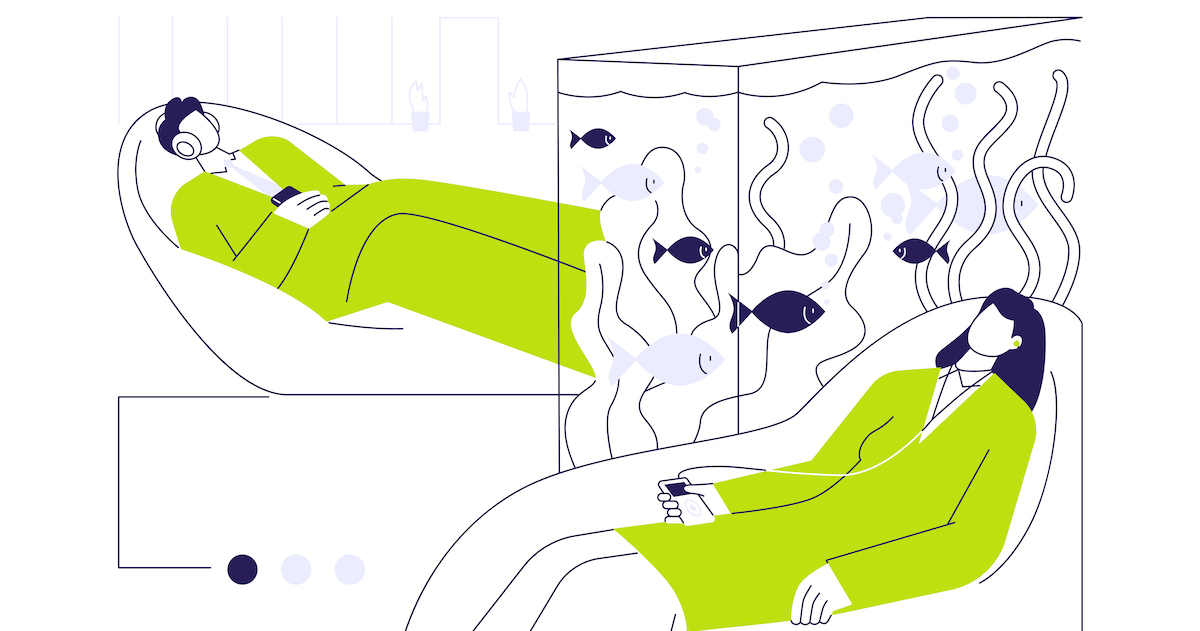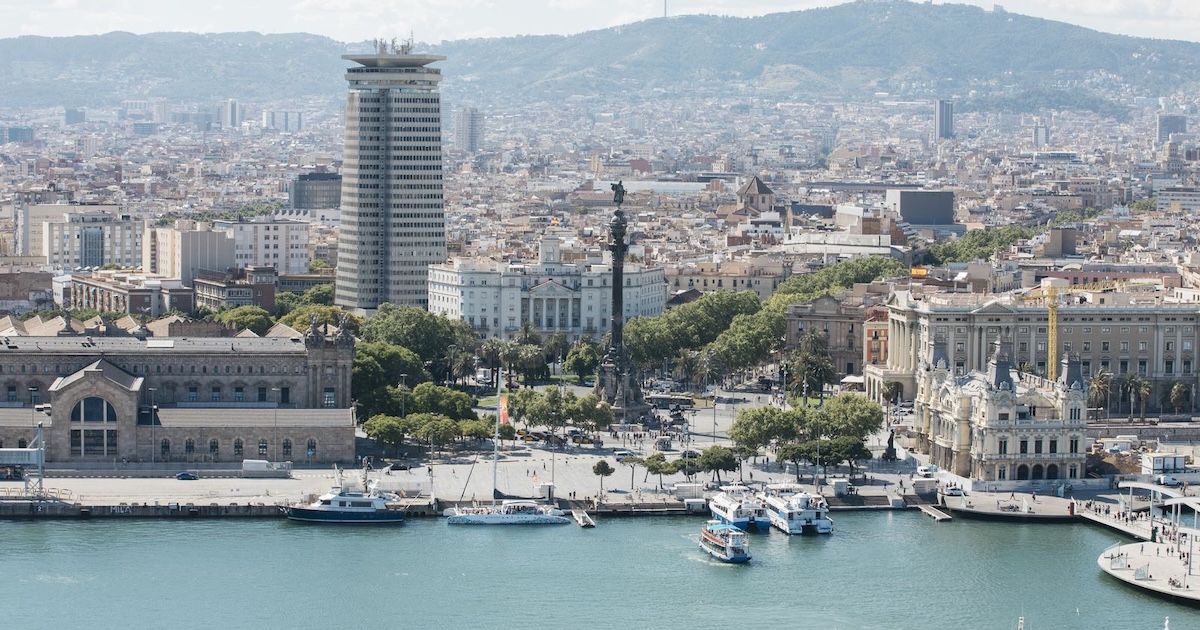I recently interviewed Sean Hoff, founder and managing partner of the SITE Crystal Award-winning incentive and retreat planning agency Moniker.
It is an INSPIRING STORY. The overarching message is we need to create our own destiny, and when you believe in yourself and empower your people—and not become a by-product of what is happening around you—anything is possible.
After interviewing Sean, I had this tremendous feeling of hope and encouragement. He shared with me how he challenged his team to take charge of their own destiny, and not sit around complaining or commiserating about the situation we find ourselves in. His attitude was inspiring—to not just complain “the sky is falling,” become complacent or sit around waiting for this to blow over. His advice: “Buckle up and tighten your laces. It’s time to come up with a new plan, because whether you like it or not, we are in this for the long haul!”
Susan Prophet: I was so excited to hear about your team-building offerings in this new virtual world, and I would like to share it with our community because I think it is relevant to what we try to achieve as experiential marketers and designers of events.
Sean Hoff: Thank you, Susan. We’re pretty excited as a team about what we’ve been able to create in such a short time, and the results that have come. It truly was born out of an adapt-or-die mindset, and we’ve been blown away by what we’ve been able to achieve so far from something that in reality didn’t even exist only 13 weeks ago.
If you could give other entrepreneurs some advice that you learned from this challenging time what would it be?
Don’t be afraid to take a leap into the unknown. If the tides are rising and the current is changing you don’t just keep doing what you were doing. You adapt, learn to swim a different stroke and paddle as hard as hell—or else perish. I’ve been referencing the quote “Out of crisis, comes clarity” a lot lately. Sometimes, when we’re faced with adversity, great things can happen if you believe in yourself and your team’s talents and abilities—and a crisis like what we’re all facing can lead to amazing things if you’re willing to buckle down and tackle it head on instead of pretending it’s just going to blow over.
When did you realize you had to look at a different strategy for your company once the reality of COVID-19 was here?
Around March. A lot of our spring/summer 2020 programs were cancelling…and I can recall exactly the moment I flipped on the news and learned about Trump’s EU travel ban, when it all became “real.” But the moment that was the proverbial “canary in the coal mine” was when we started having fall and winter programs cancelling. That’s when we understood this was going to be a fundamentally long-haul issue, not just a seasonal hurricane for which we could hunker down until it passed. That’s when we realized we had to find an alternative business model ASAP.
“If the tides are rising and the current is changing you don’t just keep doing what you were doing.”
I think we could all agree the waters in our industry were getting pretty choppy in the beginning stages of COVID, but we were confident we could withstand the waves…but when [one specific] client called to cancel, the whole boat officially capsized, and we found ourselves overboard treading water with no lifeboat in sight. We officially had no programs or revenue on the calendar for the rest of 2020 after that moment. That was a rough day.
What brought you to the direction of virtual team-building events?
The question we asked ourselves as a company was how can we build a sustainable model into the virtual world…then we got a call from a longstanding client we’ve worked with for several years down in Silicon Valley who said, “Moving to remote has left our team morale a bit blah. I just told our team, “You’re going to be running our company’s offsite at the end of the month, which just went virtual as we had to cancel the in-person BBQ event we had planned. What do you have?”
The reality was we were still deliberating as a team whether we wanted to jump on this virtual experience bandwagon, as it wasn’t something we had ever done before, and quite frankly because there is a lot of overpriced crap out there online that we didn’t want to tarnish our brand and reputation by jumping in alongside. We knew we didn’t want to be re-sellers of other people’s experiences, rather creators of our own. That was where our added value would be, and where we’d be able to actually make enough margin to survive this. So we sat down as a team, spent about one or two full weeks trying out dozens of other experiences and concepts we found online to figure out what worked, what didn’t, and what we could learn and then committed to building our own concepts from scratch—to the same standards we hold our in-person experiences to, which our clients loved.
It was the natural extension of what we do in real life for our clients. We pride ourselves on doing all of the creative and team-building planning in-house—we have almost never turned to third-party providers. Then a lot of our clients were reaching out to us saying they were experiencing dips in engagement/morale and asking if we could come up with a way to apply our creative brains from the fun, in-person stuff we do to the virtual world, and that’s how it all got started—it was led by them asking us. We committed ourselves to developing five concepts over five months, and here we are, four months later in August with four completely unique concepts and one more in development for September. It’s been a whirlwind ride, and we’ve learned a tremendous amount in the process.
How have your clients responded to your new programs?
It’s been incredible. Our existing client roster was one thing, but the amount of new clients we’ve been introduced to because of the virtual experiences bodes well for the long term. We’ve signed on a few subscription-model-type clients where they set aside an hour or two every month in their company calendars and we jump in to treat their team to something engaging. It keeps us really busy and on our toes to keep developing new concepts. We are actually looking to hire a few people right now to keep up with the demand, which if you told me a few months ago we would be growing during COVID, I would have told you that’s crazy. This is turning into an entire second division for us now, which I fully expect to keep going long after COVID passes and more teams have committed to moving fully into a remote setup—and still looking for creative ways to engage their teams virtually. We’re also hoping the relationships we’re developing now on smaller-ticket monthly virtual events will translate into a natural segue into the travel programs when it’s appropriate again. I fundamentally believe our industry is in for a boom in late 2021 as companies’ appreciation grows for how important the face-to-face time is for building culture and camaraderie and acknowledge it just can’t be replicated by virtual gatherings.
How has this worked out and what have you learned?
Trying to figure everything out on the fly has been like trying to drink water from a firehose. Adapting our business model and operations quickly, learning a ton about search engine marketing (SEM) and SEO to drive traffic and eyeballs to our new website, learning more about the science behind team building (e.g. ideal team sizes, formats, etc.); figuring out how to write murder mystery scripts, casting actors and making screenplays; and now working with a team of Ukrainian engineers to create our new virtual escape room—the list goes on. Safe to say our collective resumes have gotten a bit longer and more interesting since COVID began.
Experiential Marketers & Designers Community: Start designing experiences.
The results have been both surprising and humbling. On the one hand, internally as a team I feel we’ve never been stronger. We have managed to stave off layoffs and keep everyone whole, and for the first time everyone is working together on projects and discovering new skillsets and talents that contribute. Rallying around our milestones and wins has really brought us closer as a small team of seven. On a business level, to use a baseball analogy, we’re getting used to hitting a ton of singles vs. homeruns to drive revenue…it’s an entirely different ballgame now, and adapting our sales process and operations has been exhilarating.
What outcomes are the corporations looking for?
Engagement. And it doesn’t have to be in the traditional sense of team building. Just giving people the chance to disconnect from the daily routine/grind of working from home, having a laugh with their colleagues or playing some fun problem-solving games that end with a virtual high-five or shared kudos.... Obviously, there are hidden team-building elements, but the more hidden they are, the better. Part of the reason our murder mystery has been so successful is most people don’t even realize that under the actors interrogations, rad 80s getups and riots of laughter is a very solid foundation of working on communication skills, problem solving, cooperation, influence and persuasion to reach a group decision on the final verdict. Our next concept: An adaptation of the play 12 Angry Men is going to put participants in the role of a jury on a fictitious criminal case, but underneath all of the TV legal drama fun is a lot of traditional team-building elements like cooperation, building consensus, compromise and making decisions with imperfect data or information.
It seems your portfolio is growing on the virtual experiences—when do you project F2F meetings, events and incentive travel will come back?
Realistically, end of next summer into Q3/Q4 2021.
Individuals and families will be back to traveling soon—domestically, then dipping their toes internationally in white-listed countries. For companies, however, we’re expecting a much longer lag. There are too many unknowns, variables, comfort levels, etc., for most company’s risk appetites. We are nowhere near the green light to move hundreds of bodies abroad with zero risk or exposure that we can confidently tell clients and their employees we know how to 100 percent mitigate. And even when it does, the size of the pie is likely going to be smaller. There will simply just not be as many companies who will be willing to spend what they did on hosting elaborate meetings or glamorous incentives now they’ve seen and adjusted to the (much cheaper) alternative online. We need to accept that and plan for it.
Photo by Alin Surdu on Unsplash







